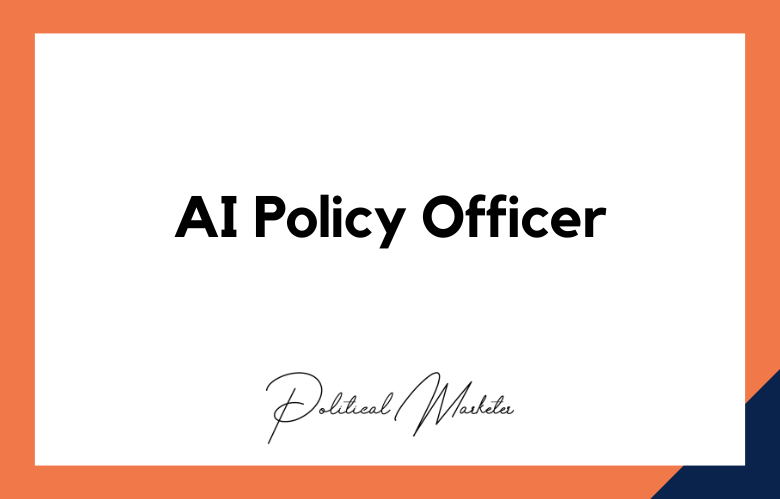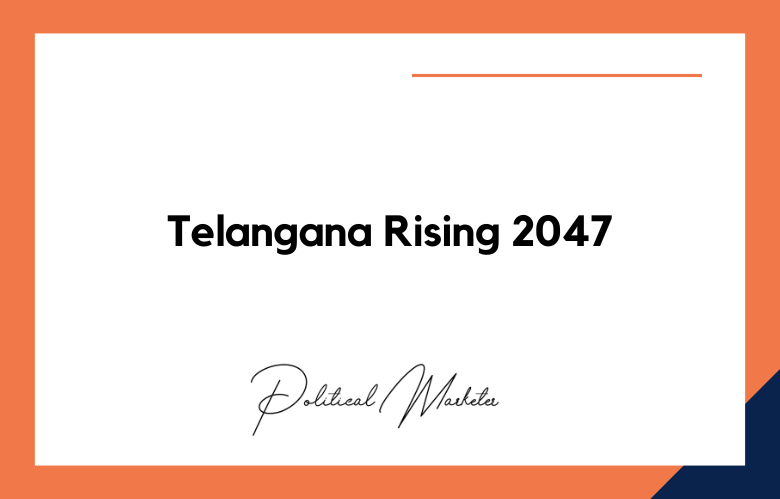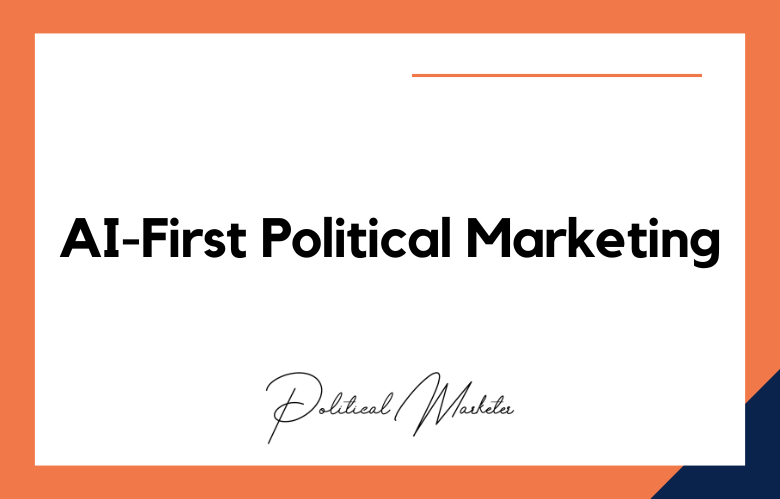In the complex and fast-paced world of politics, a Political Media Planning Consultant plays a pivotal role in shaping public perception and guiding campaign strategies. This professional specializes in crafting and executing comprehensive media plans that align with a political candidate’s goals and resonate with targeted voter demographics.
Political Media Planning Consultant
Their expertise spans various media platforms, including traditional outlets like television, radio, and print, and digital channels like social media, websites, and email campaigns. A Political Media Planning Consultant begins by conducting thorough research and analysis to understand the political landscape, voter behaviors, and critical issues.
This involves analyzing polling data, demographic trends, and the electorate’s media consumption habits. With this foundational knowledge, the consultant develops a media strategy leveraging different platforms’ strengths to maximize reach and impact.
One of the primary responsibilities of a Political Media Planning Consultant is to create compelling messaging that captures the essence of the candidate’s platform and resonates with voters. This involves crafting explicit, concise, and persuasive content that can be adapted for various media formats. The consultant ensures the messaging remains consistent across all channels, reinforcing the candidate’s brand and policy positions.
In the digital age, a significant part of media planning involves utilizing social media and online advertising to engage with voters directly. The consultant designs targeted social media campaigns, manages content calendars, and oversees ad placements to ensure optimal visibility and engagement. They also monitor and analyze campaign performance, making data-driven adjustments to improve outcomes.
Political Media Perception Management
Political Media Perception Management refers to the strategic efforts by political parties, candidates, and consultants to shape how the public and media perceive political narratives, leaders, and campaigns. This involves real-time response teams, narrative control through digital platforms, meme warfare, influencer collaborations, podcast storytelling, and issue-based content distribution. The goal is to influence public opinion, counter misinformation, and maintain a favorable image throughout an election cycle using tools like AI analytics, social listening, and regional media engagement.
Core Components
Narrative Framing and Control
Narrative framing involves crafting a consistent story around policies, leadership traits, and political goals. This often includes:
-
Establishing thematic messaging aligned with voter concerns (e.g., job creation, social justice, corruption-free governance)
-
Preempting media cycles with planned announcements and talking points
-
Training spokespersons and leaders to maintain message consistency
Narrative control ensures that when a political controversy arises, the damage is minimized through counter-narratives, clarification campaigns, or distraction techniques.
Media Monitoring and Real-Time Response
Teams actively track television, print, and digital coverage to identify emerging issues, misinformation, or opposition attacks. This involves:
-
Social listening tools to track trending topics and sentiment
-
Real-time dashboards with media mentions and influencer activity
-
Rapid response content such as fact-checks, clarifications, or counter-messaging
Such systems help campaigns respond promptly and maintain authority over the evolving discourse.
Digital Content Strategy
A highly organized content strategy is used to saturate digital platforms with political messaging. Key methods include:
-
Micro-targeted ads with segmented voter profiling
-
Short-form video content optimized for Instagram, YouTube, and Facebook
-
Infographics and quote cards that simplify complex policy positions
-
Meme content tailored for WhatsApp and Telegram sharing
Campaigns also use content seeding to distribute narratives across multiple credible-looking channels to simulate widespread public opinion.
Influencer and Community Engagement
Political consultants actively collaborate with digital influencers, YouTubers, regional bloggers, and meme pages to drive indirect message reinforcement. This includes:
-
Paid or organic endorsements of policies and leaders
-
Coordinated Twitter trends or hashtags
-
YouTube collaborations discussing election promises or achievements
-
Closed group outreach on Telegram, Signal, and Facebook to mobilize supporters
Such engagements allow campaigns to bypass traditional media scrutiny while reaching niche or skeptical voter segments.
Regional Media Management
National-level messaging is tailored for regional consumption through:
-
Local language press releases and vernacular interviews
-
District-level WhatsApp groups to circulate constituency-specific updates
-
Relationships with regional reporters to ensure favorable coverage
-
Use of hyperlocal influencers to validate campaign efforts
This localization ensures that political messages resonate with cultural and linguistic sensibilities in different regions.
Opposition Monitoring and Narrative Countering
Political perception management also requires constant tracking of opposition activities, including:
-
Daily monitoring of competitor speeches, media appearances, and online posts
-
Preparation of rebuttal documents or pre-recorded reactions
-
Deploying surrogates or third-party voices to discredit opposition claims
-
Leveraging legal notices or official clarifications to create deterrence
This reduces the risk of narrative hijacking and controls potential reputation damage.
Crisis and Damage Control
When faced with political scandals, leaks, or protests, campaigns deploy rapid damage control mechanisms:
-
Temporary media silence to reduce visibility
-
Controlled interviews or leaks to shift focus
-
Use of sympathetic influencers or anchors to reshape interpretation
-
Coordinated hashtag trends to bury negative coverage
Controlling the first 24–48 hours of a crisis is considered essential for perception recovery..
Data Analytics and Sentiment Analysis
Advanced perception management relies heavily on metrics and real-time feedback. Teams use:
-
Sentiment analysis dashboards to track tone across media and platforms
-
Predictive modeling to anticipate public reaction to new policies or events
-
AI-generated message variants to A/B test effectiveness
-
Voter data mapping to refine content based on regional demographics
Analytics inform which narratives to amplify, modify, or retire.
Platform-Specific Tactics
Each digital platform requires a distinct approach:
-
Twitter: Timely, bold messaging aimed at journalists, influencers, and the politically active class
-
Facebook: Family-friendly narratives, regional achievements, and photo albums from rallies or welfare events
-
YouTube: Long-form explainers, leadership vlogs, and interviews with aligned creators
-
Instagram: Quote cards, aesthetic videos, and leadership branding for younger demographics
-
Telegram/WhatsApp: Meme warfare, internal campaign briefings, and viral rumor management
Cross-platform consistency is maintained without making content repetitive.
Ethical Considerations and Transparency Challenges
While media perception management is legal, several ethical concerns persist:
-
Lack of transparency around sponsored content and influencer partnerships
-
Use of manipulated visuals or edited clips to mislead viewers
-
Suppression of dissenting voices or targeted harassment of journalists
-
Risk of polarizing voters through disinformation or communal messaging
Public literacy, media regulation, and third-party fact-checkers play a limited but growing role in maintaining checks and balances.
Top Strategies for Political Media Planning Consultants in 2024
As a political media planning consultant in 2024, it’s crucial to stay ahead by adopting innovative strategies that cater to the rapidly evolving media landscape. Here are some top strategies to consider:
Embrace Connected TV (CTV) Advertising
CTV combines digital targeting capabilities with traditional TV storytelling power, offering a powerful and cost-effective way to reach audiences.
Leverage Artificial Intelligence (AI) for Optimization
AI can help optimize ad placement, audience targeting, and bidding strategies, ensuring your campaign reaches the right people at the right time.
Personalize Your Message
Utilizing data to tailor messaging to specific demographics, interests, and geographic locations increases engagement and impact.
Prioritize Authentic Content
Building trust with voters is crucial in an age of misinformation. Focus on creating genuine, transparent content that resonates with your target audience.
Implement Multichannel Campaigns
Integrate channels such as social media, email, and traditional media to create a cohesive, cross-platform strategy that reaches voters across multiple touchpoints.
The Role of Data Analytics in Political Media Planning Consultancy
Data analytics has revolutionized the field of political media planning consultancy, providing critical insights and enabling more precise and effective campaign strategies. By leveraging vast amounts of data, consultants can better understand voter behavior, optimize media spending, and enhance the overall impact of political campaigns. Here’s how data analytics plays a crucial role in this domain.
Understanding Voter Behavior
One of the primary uses of data analytics in political media planning is to gain a deep understanding of voter behavior and preferences. By analyzing polling data, social media interactions, and historical voting patterns, consultants can identify critical demographics, issues of importance, and sentiment trends. This information is vital for crafting targeted messages that resonate with specific voter segments.
For example, data analytics can reveal which issues are most important to suburban voters versus urban voters or how different age groups are likely to respond to specific policy proposals. By tailoring messages to these insights, political consultants can more effectively engage and persuade their target audiences.
Optimizing Media Spend
Another area where data analytics shines is the efficient allocation of campaign resources. By analyzing data on media consumption habits, consultants can determine the most effective channels and times to reach their intended audience. This includes deciding how much to invest in television ads versus digital ads and which social media platforms will yield the highest engagement rates.
Advanced analytics tools can also provide real-time feedback on the performance of different media channels, allowing for quick adjustments and reallocation of resources to maximize return on investment. This ensures that every dollar spent on media has the most significant impact.
Enhancing Message Effectiveness
Data analytics enables the continuous refinement of campaign messages. By monitoring voter responses to different types of content, consultants can identify which messages are most effective and which need adjustment. This can be done through A/B testing of digital ads, sentiment analysis of social media posts, and tracking engagement metrics such as likes, shares, and comments.
Moreover, predictive analytics can forecast the potential impact of different messages on voter turnout and support. This allows consultants to proactively adjust their strategies to address potential issues before they become significant problems.
Real-Time Monitoring and Adjustment
One significant advantage of data analytics is the real-time monitoring of campaign performance. This real-time data lets consultants quickly identify and respond to emerging trends or issues. For example, if a message is not resonating as expected, it can be revised or replaced promptly.
Additionally, real-time monitoring helps in crisis management. Suppose negative sentiment or misinformation starts to spread. In that case, data analytics can quickly identify the source and extent of the problem, enabling a rapid and targeted response to mitigate any potential damage.
Predicting Election Outcomes
Data analytics also plays a pivotal role in predicting election outcomes. By analyzing historical data and current polling, consultants can develop models to forecast election results with a high degree of accuracy. These predictions help strategize and prioritize efforts in key battleground areas, ensuring that resources are focused where they are most needed.
Maximizing Social Media Platforms for Political Campaigns: A Consultant’s Guide
In today’s digital age, social media platforms have become indispensable tools for political campaigns. They offer unparalleled opportunities for engagement, outreach, and mobilization. This guide provides consultants with strategies to maximize the effectiveness of social media in political campaigns.
Understanding the Landscape
Platform Demographics
Different platforms attract different demographics. Facebook tends to have a broader age range, while Instagram and TikTok appeal more to younger audiences. LinkedIn is useful for professional networking and policy discussions.
Content Types
Each platform favors different types of content. Twitter is ideal for short, timely updates and engagement, whereas Instagram and TikTok focus on visual and video content. Facebook supports a mix of text, video, and image posts.
Crafting a Compelling Narrative
Consistent Messaging
Develop a consistent narrative that aligns with the candidate’s values and campaign goals. Consistency builds trust and recognition.
Storytelling
Use storytelling to humanize the candidate. Share personal anecdotes, behind-the-scenes content, and testimonials to create a relatable image.
Content Strategy
Variety and Frequency
Post a mix of content types—videos, live streams, infographics, and text updates—and maintain a regular posting schedule to keep the audience engaged.
User-Generated Content
Encourage supporters to create and share content. This fosters a sense of community and amplifies the campaign’s reach.
Engagement and Interaction
Two-Way Communication
Social media is not just for broadcasting messages; it’s also for engaging with the audience. Respond to comments, messages, and mentions to build rapport.
Live Events and Q&A Sessions
Host live events and Q&A sessions to directly interact with supporters, address concerns, and provide real-time updates.
Advertising and Promotions
Targeted Ads
Use sophisticated targeting options on platforms like Facebook and Instagram to reach specific voter demographics.
Budget Allocation
Allocate budget strategically across platforms based on their reach and engagement metrics. Monitor and adjust campaigns for optimal performance.
Data Analytics and Insights
Performance Metrics
Track key performance indicators such as engagement, follower growth, and conversion rates. Use these insights to refine strategies.
A/B Testing
Conduct A/B testing to determine the most effective types of content and messaging.
Addressing Challenges
Crisis Management
Establish a plan for managing negative publicity and misinformation. Swift, transparent communication is critical.
Algorithm Changes
Stay informed about changes in platform algorithms to ensure content remains visible and engaging.
How to Create Impactful TV Ad Campaigns as a Political Media Planning Consultant
In the fast-paced world of political media planning, crafting a memorable and impactful TV ad campaign can be a game-changer for your candidate or cause. As a consultant, you design a strategy that resonates with voters and delivers results. Here’s a guide on how to create TV ad campaigns that leave a lasting impression:
Research Your Target Audience
Understand your target voters’ demographics, values, and preferences. Tailor your messaging and visuals to speak directly to their needs and concerns.
Craft a Compelling Narrative
Develop a powerful story that showcases your candidate or cause’s strengths and highlights their unique value proposition. Utilize emotional appeal and storytelling techniques to make your message resonate with viewers.
Select the Right Channels and Timing
Choose appropriate channels, time slots, and programs to reach your target audience effectively. Depending on your campaign scope, consider local, regional, or national channels.
Utilize Data and Analytics
Leverage data to measure ad performance and adjust your strategy. A/B tests different creatives and messaging to optimize your campaign for maximum impact.
Maintain Consistency Across Platforms
Ensure your TV ads align with your overall campaign messaging and visuals. Consistency builds trust and brand recognition among voters.
By following these steps, you’ll create TV ad campaigns that capture voters’ attention and inspire them to take action and support your candidate or cause.
Conclusion
The role of a Political Media Planning Consultant is pivotal in modern political campaigns. By leveraging data analytics, strategic media planning, and targeted communication, these consultants ensure that campaign messages effectively reach and resonate with the intended audience. Their expertise in navigating the complex media landscape, including traditional and digital platforms, is essential for optimizing campaign visibility and engagement.
As political campaigns evolve in the digital age, the skills and strategies employed by Political Media Planning Consultants will remain crucial in shaping public opinion and achieving electoral success. Effective media planning maximizes resource efficiency and enhances the overall impact of political campaigns, making the consultant’s role indispensable in politics.
Political Media Planning And Perception Management Consultant: FAQs
What Does A Political Media Planning Consultant Do?
They design and execute targeted media strategies across television, radio, print, and digital platforms to influence public perception and voter behavior.
Why Is Media Planning Essential In A Political Campaign?
It ensures the right message reaches the right audience efficiently, maximizing visibility and influence within budget constraints.
What Are The Initial Steps In Crafting A Political Media Plan?
Define campaign goals, identify target demographics, select communication channels, plan content timelines, and develop outreach strategies.
How Does Connected TV (CTV) Advertising Benefit Campaigns?
It combines the broad reach of television with the targeting precision of digital ads, allowing for efficient voter engagement at scale.
How Is Data Analytics Used In Media Planning?
It helps campaigns understand voter behavior, optimize media spending, refine messaging, and adapt strategies in real time.
What Role Does Predictive Modeling Play?
Predictive models anticipate voter reactions and help campaigns tailor messages, timing, and media placements accordingly.
What Is Narrative Framing And Control?
It involves crafting consistent messages around campaign themes and using those narratives to influence public discourse and media interpretation.
How Do Consultants Maintain Message Consistency?
By training spokespersons, using unified talking points, creating content templates, and coordinating releases across platforms.
Why Personalize Campaign Messaging?
Personalized content improves relevance and engagement by addressing specific concerns of demographic or regional voter segments.
Which Social Channels Should Campaigns Use?
Campaigns should use Twitter for real-time updates, Facebook for community outreach, YouTube for long-form video, Instagram for visual branding, and WhatsApp or Telegram for private group communication.
What Comprises A Digital Content Strategy?
It includes paid ads, short videos, graphics, memes, a content calendar, and consistent messaging tailored to each platform’s audience.
How Do Campaigns Use Influencers?
They collaborate with creators, bloggers, and meme pages for endorsements, trend amplification, and engagement within niche audiences.
How Are Traditional And Digital Channels Integrated?
Campaigns coordinate timing, messaging, and performance metrics to maintain consistency across both legacy and digital media.
How Do Political Campaigns Use Media Buying?
They allocate budget strategically across platforms and adjust placements based on audience reach, cost-effectiveness, and campaign priorities.
How Do Consultants Monitor Opposition Narratives?
They track speeches, media appearances, and online sentiment to identify emerging threats and prepare rebuttals or counter-narratives.
What Steps Are Involved In Crisis Management?
Effective crisis management includes message containment, strategic silence, redirecting narratives, and deploying controlled media responses.
How Are Technology Consultants Involved In Political Campaigns?
They manage digital infrastructure, data platforms, ad systems, and online security to ensure stable and secure campaign operations.
How Does AI Enhance Political Media Planning?
AI tools support voter profiling, message generation, sentiment analysis, real-time feedback tracking, and optimization of media delivery.
What Ethical Challenges Exist In Perception Management?
Challenges include the use of misleading content, undisclosed paid promotion, suppression of dissent, and mishandling of personal data.
How Can Campaigns Stay Transparent?
By labeling sponsored content, protecting voter data, supporting fact-checking, and maintaining clear disclosures around influencer and media relationships.










